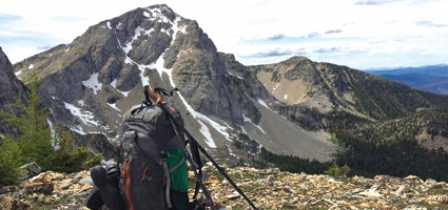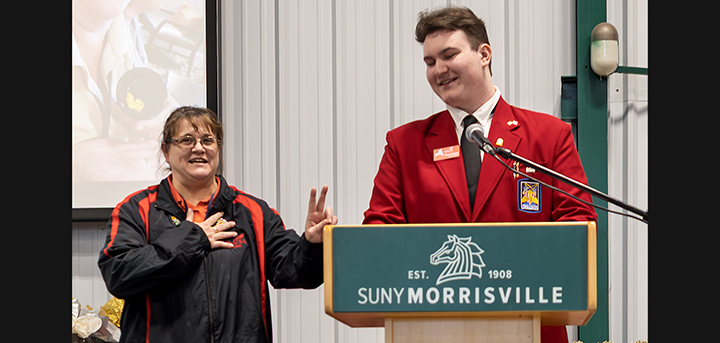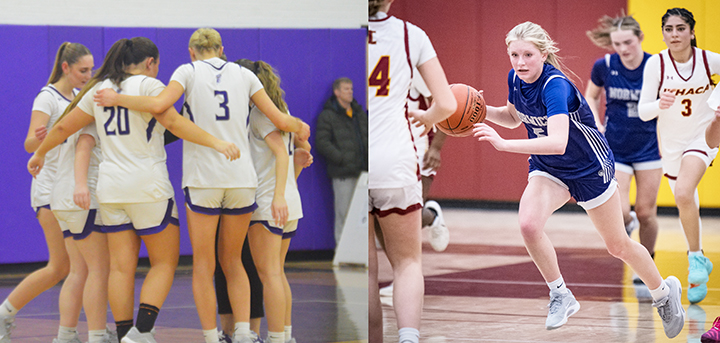Week Six: Deadfall
“Looks like you’ll be driving into a storm.” remarked the carpenter.
Sure enough, the skies to the west seemed ready to launch a furious offensive into the heart of Montana’s Pintler Mountains. I threw my backpack into the back of the jeep anyway. At least a hike would take my mind off the cost of these renovations to my tiny Montana home.
Thankfully, the rain let up after the first hour on the trail, though the wind remained a persistent presence. It whistled across the tops of trees killed in the 2000 Musigbrod Fire, making a disturbing noise like the wailing of a thousand anguished souls. Perhaps the ghosts of the dead pines were still active, reliving the moment of destruction and screaming in terror at the oncoming flames. Groans also emanated from within several trunks as they strained and twisted in the wind. I thought I might be pulverized by a falling tree, but the only thing that struck me was a douglas fir pinecone thrown by a mischievous squirrel.
Previous storms had dropped dozens of trees across the trail, however, and at Johnson Lake, a squadron of young Americorps volunteers was just beginning to stash equipment in preparation for several weeks of trail-clearing. Their crew leader gave me his number and asked if I would report back on conditions deeper within the wilderness. I accepted the mission. In truth, I felt a little like a kid being given a plastic badge that said “Junior Deputy”. It’s nice to be able to contribute to the upkeep of the forest, even in such a small way.
I took my job seriously and counted fifty downed trees during the next two miles, though the wreckage forced me to do some precarious balancing on tree trunks in order to continue. Guess I was fortunate to have a trail to follow. Martin “Seven Dog” Johnson – after which the lake was named – created many of these trails through the Pintler Mountains, beginning in 1887. He worked as a hunter, trapper and guide, capturing several mountain goats and selling them to zoos across the United States. A woodsman to the end of his life, Johnson died at age 79 by falling off a cliff while elk hunting. I hoped to avoid a similar fate, but these ambitious hikes weren’t helping my chances.
After fourteen weary miles, I reached Warren Lake, dropped my pack and admired the prominent mountain that dominated the western edge. Rugged, proud and nameless, it spat gusts of wind across the lake’s surface that quickly cooled my blood. I had to make myself some hot chocolate to keep from freezing while I pitched the tent and built up a small fire. Tonight was going to be a cold one.
I quickly realized that campfires during twenty-five-mile-an-hour windstorms were a fairly inefficient way to get warm. The wind blew most of the heat sideways out of the campsite, along with a continuous stream of sparks. I had to crouch down by the coals, hold out my hands and watch out for embers, brushing aside any that settled on my synthetic clothes before they could burn holes through to my skin. Eventually, I gave up on the fire and went to bed. Big, unpredictable day tomorrow.
When morning came, I ate a quick breakfast, tromped through the icy meadows beside my campsite and struck straight up the side of West Goat Peak – the highest mountain in the Pintlers. The peak was a strange outlier to the rest of the range, rising a short distance away from its more dramatically-chiseled brethren. This physical separation gave me the perspective I needed to consider my next move.
I had about twenty-five miles left to go on my journey through the Pintler Range, yet only enough food for one more night. In addition, more storms could be rolling in tomorrow. West Goat Peak had been a worthy goal, but it had consumed a crucial amount of time and energy. If I didn’t want to retreat the way I had come yesterday, I was going to have to get creative.
I needed a shortcut. From my vantage point, I noticed that I could trim nine miles off my journey and avoid a long, circuitous path if I could just make it up and over the long ridge separating Warren Lake from Maloney Basin. My map showed some extremely dense contour lines on the far side of the ridge, though. If I hiked up there only to find impassable cliffs, I’d be in much worse shape than I was in now. Even from the heights of West Goat Peak, I couldn’t tell what lay in store for me.
I decided to take the gamble. I descended, broke camp and hauled my gear up the ridge to the one spot on the map where the contour lines looked reasonable, right where the ridgeline snuggled up against the twisted face of Warren Peak’s next-door neighbor. From there, I saw several gullies that might take me down the cliffs into Maloney Basin. Slightly reassured, I chose the least dangerous looking of the three, and began my descent.
Careful not to slide on the rubble, I picked my way down the wide chute made of golden granite, which narrowed and grew more vertical the further I dropped. I used every nick and crevice I could find to control my descent, but eventually the gully grew so steep that I couldn’t see the bottom anymore. Before I was funneled into a point-of-no-return, I finally ditched my backpack and scrambled thirty feet lower to peer over what I soon realized was a precipice. There was absolutely no safe way to continue to the valley floor. In fact. after a rainstorm this would have been a fifty-foot waterfall.
Dismayed and unwilling to think about having to retrace my steps back to Warren Lake, I considered the unlikely possibility that one of the other gullies might provide passage to Maloney Basin. More likely I would encounter the same band of cliffs and have to turn around again. Still, I knew it wouldn’t hurt to peek around the edges of the gully to see if I could exit this one and enter another.
I clung to the few shrubs I could find and worked my way over the lip of the chute, where I noticed something promising: bare dirt where there should have been rubble. A trail. I’d discovered a mountain goat trail that cut diagonally across the cliff face itself. Good thing “Seven Dog” Johnson hadn’t shipped every goat out of the Pintlers… otherwise I might not have found the path.
Of course, what mountain goats can do and what humans can do on mountainsides are sometimes two very different things. If I lost control walking across the loose gravel patches, I’d go skittering right off the edge. I must have some goatish DNA lurking in my genes, however, for I successfully crossed the precarious series of narrow ledges and made it to the base of the cliffs.
I stood amid the shards of boulders that had failed to survive the descent, looking up one last time at the treacherous ridgeline. Another gamble had narrowly paid off. Maybe I’d actually live to be 79. Maybe not.
I spent my final night in the Anaconda-Pintler Wilderness at Carrp Lake, where the rainbow trout seemed quite interested in the bait I had to offer. I caught several specimens and fried them up with spices and oil. Unfortunately, my inexperience with backcountry cuisine quickly became apparent, for half the morsels I ate were raw, and the other half were completely charred. I suppose if my risk-taking on mountainsides doesn’t kill me someday, my cooking certainly will.





Comments